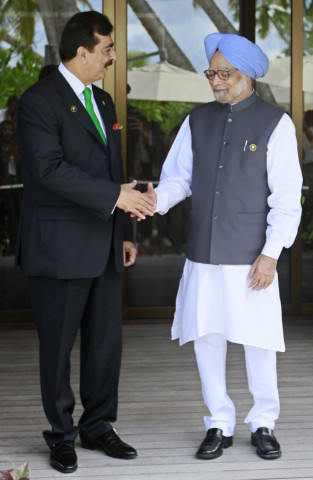Setting the tone
While no significant agreements were reached between Gilani, Singh, decision to further friendship is important.

This is especially relevant given the history between the two countries. Since the events of November 2008 in Mumbai, relations have been strained. It is only now that some semblance of normalcy is returning, the terse words of the past beginning to disappear from speeches. The decision by the Pakistan cabinet to grant India Most Favoured Nation status marked a step in this direction. And Gilani and Singh have indicated they both intend to continue to walk along the same road, stride in stride, reaching a goal of greater harmony and better understanding.
This is crucial to peace in the region and to an end to the militancy which remains, for now, one of the biggest burdens we bear on our shoulders. Militancy cannot end until there is dialogue with India and eventually some effort to resolve the Kashmir question. This, of course, will take time, but closer relations can only help the people of both countries. We must therefore be grateful that the sea breeze in the Maldives has blown in such good news with the leaders of both nations making it quite clear they wish to make a new beginning and allow the past to drift away as tides take a turn.
Published in The Express Tribune, November 11th, 2011.















COMMENTS
Comments are moderated and generally will be posted if they are on-topic and not abusive.
For more information, please see our Comments FAQ